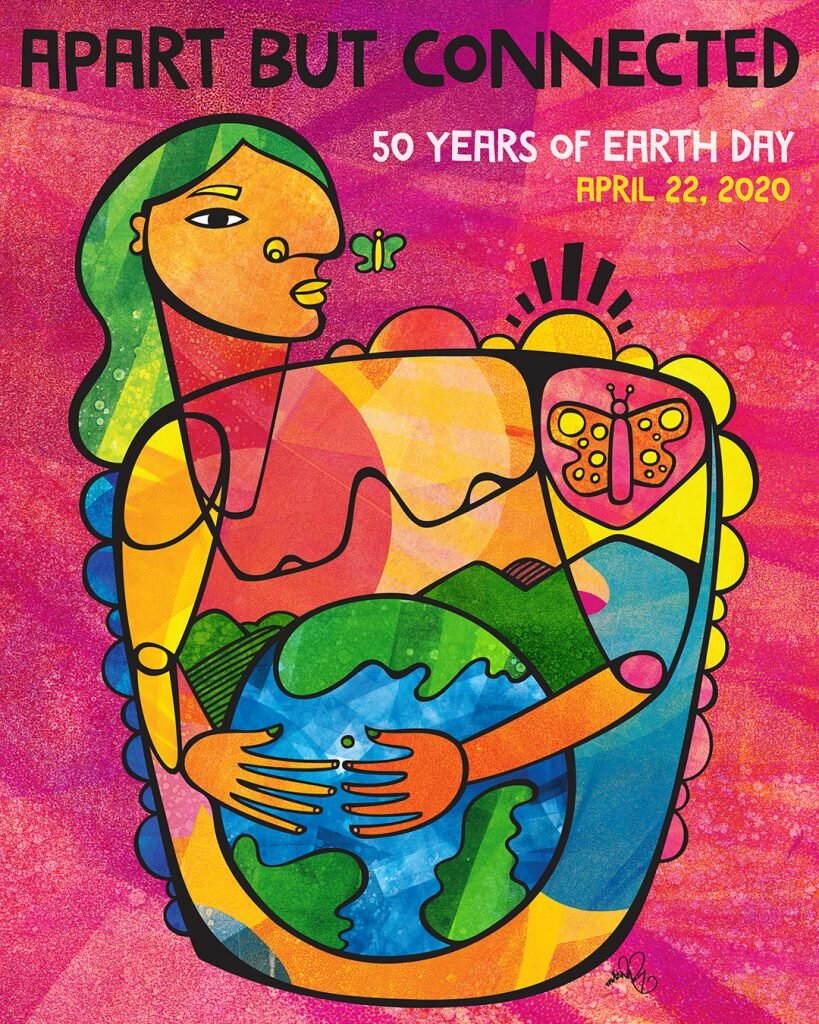With the world in the grip of the first truly global pandemic in the Internet age — or, indeed, in living memory — Earth Day, the one day a year dedicated to environmental protection, seems like it might warrant less attention. After all, thousands are falling ill every day, do we have time to concern ourselves with something less pressing than the immediate peril?
We would argue, however, that concern for one pressing issue does not mean that our focus on another long-term problem has to be diminished. The coronavirus is a temporary battle for human health, but climate change is the war on the horizon.
As it is, reduced human traffic due to Covid-19 lockdowns has already shown us the positive effects that can be seen when we reduce our environmental impact — animals are coming back to urban areas, Leatherback turtles are laying more eggs than ever on usually-busy beaches, and air pollution has plummeted.
So today, 22 April 2020, we are commemorating Earth Day for the 50th time, to remember that we still have some work to do.
Past, Present, Future
Earth Day began on April 22, 1970, in the United States, when some 20 million citizens took to the streets to protest the ignorance and degradation of the natural environments. Today, that protest is credited with launching the modern environmental movement, leading to the passage of environmental protection laws concerning pollution and wildlife protection —laws that were passed not just in the US, but all over the world.
In the 50 years since, the Earth Day organisation — yes, there is one — has launched programmes to end plastic pollution, protect the biodiversity of natural environments, make the earth greener by planting millions of trees, and reduce the world’s foodprint — that is, the carbon footprint associated with growing, producing, storing, and transporting the world’s food.
-

Earth Day 2020
(Image: Earth Day) -

Earth Day 2020
(Image: Earth Day) -

Earth Day 2020
(Image: Earth Day)
Earth Day also mobilises artists to create work that galvanises audiences and encompasses our shared experiences.
(Images: Earth Day)
This year, Earth day is focused on the single largest and most pressing environmental concern we face — climate change. Unfortunately, it is still continuing to accelerate.
To that end, Earth Day has aimed to mobilise one billion people around the planet through its Earth Day Live programme to raise awareness and create stronger calls to action to tackle the problem of climate change.
The Earth Day Live programming (which begins at 12 noon Singapore time) will feature messages, conversations, and performances from the likes of Dr Sylvia Earle, Al Gore, and John Kerry. To accommodate all of the speakers and performances, the programme will extend through 24 April 2020.
Like the situation with Covid-19, the climate change movement requires effort from all of us in order to affect change. Tuning into a livestream is just one tiny step — because, of course, more concrete measures are required — but every little action counts.
To tune in to Earth Day Live, go to earthday.org
